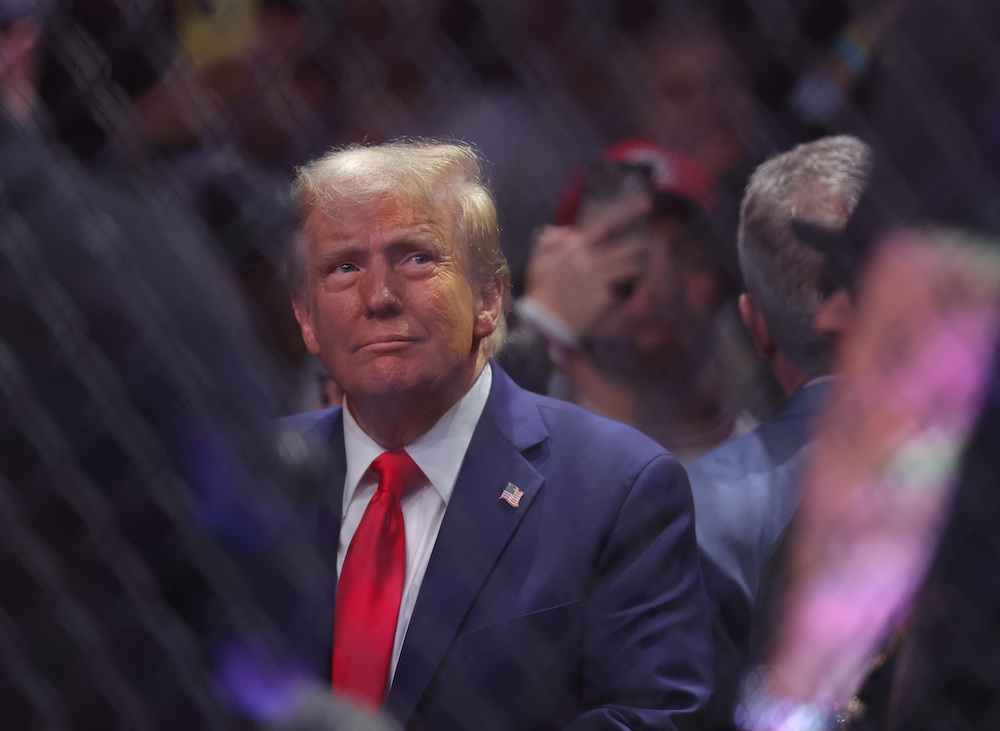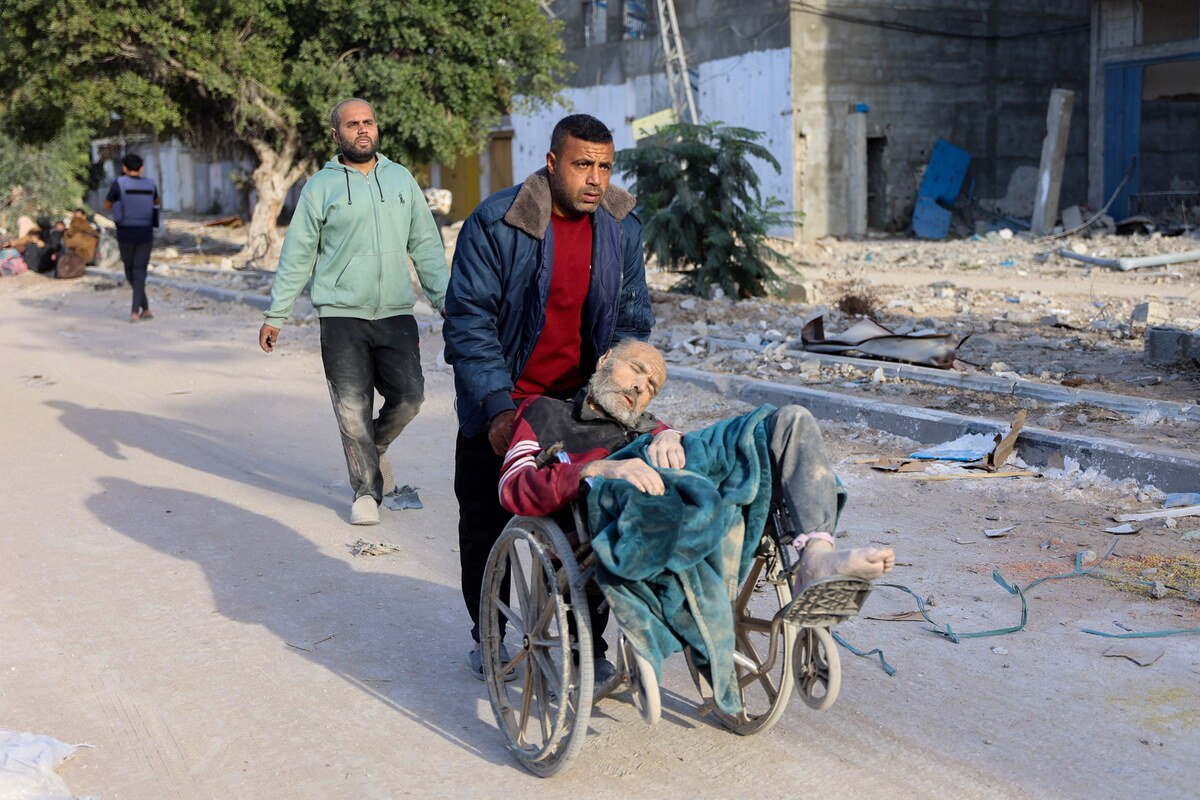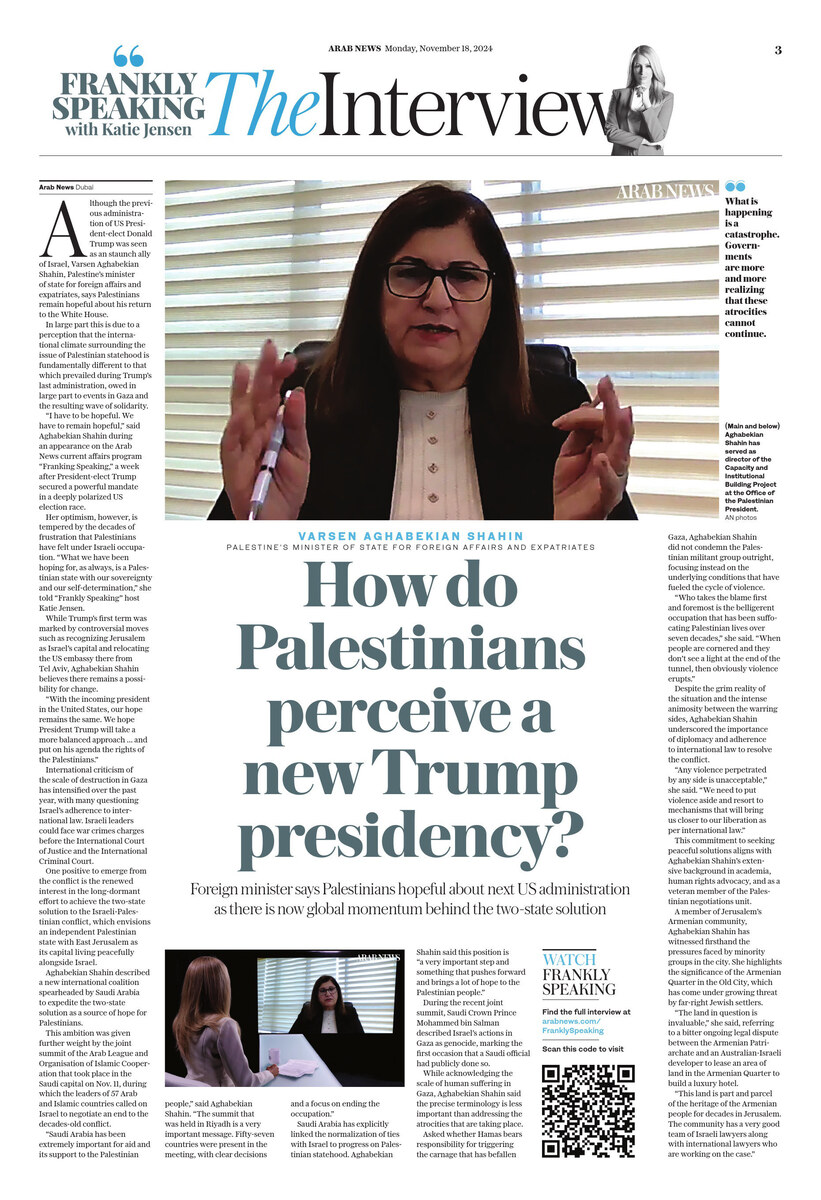BAGHDAD: Iraq was spiralling into chaos on Sunday as eight more people were killed and 25 injured on a sixth day of protests against corruption, unemployment and failed public services.
The latest violence raised the total number of deaths to 104 people and more than 6,000 wounded in less than a week of unrest, Interior Ministry spokesman Major General Saad Maan said on Sunday on state TV.
Prime Minister Adel Abdul Mahdi announced a series of reforms after an “extraordinary” overnight Cabinet session, but politicians and others told Arab News they would not be enough to end the protests.
Abdul Mahdi’s 17-point plan was the result of an emergency cabinet meeting on Saturday night and comes after days of offering only vague reform promises.
It includes increased subsidized housing for the poor, stipends for the unemployed as well as training programs and small loans initiatives for unemployed youth.
“Abdul Mahdi is floundering,” a prominent Shiite politician said. “The problem is clear and the solutions are obvious, but he is too weak to make a bold decision and act.
“What he has to do is abandon the net of corrupt people surrounding him who actually govern, but he won’t do that and they will not let him.”
Abdul Mahdi’s reform plan included granting of plots of land to low-income families, building 100,000 new homes in poor areas, a monthly grant to the unemployed and the disabled, small trading stalls to provide job opportunities, and new training courses for graduates.
Analysts said it would not be enough to assuage protesters who accuse the prime minister of turning a blind eye to excessive force by Iranian-backed armed factions.
“Live bullets were the first choice of these forces, without hesitation,” an Iraqi human-rights activist told Arab News.
Abdul Mahdi’s backers would view the fall of his government as a victory for the US and its allies, observers said.
“The pressure on Abdul Mahdi from his allies to prevent his resignation or retreat is enormous,” analyst Rahman Al-Jobouri told Arab News.
“What is clear is that the protests will not end, but what is clearer is that Abdul Mahdi will not resign.”
Latest deaths
The latest deaths on Sunday came in new clashes between protesters and police in the eastern Baghdad suburb of Sadr City, where security forces used live rounds and tear gas.
Maan said 18 people died overnight on Saturday, and masked gunmen dressed in black stormed TV channel offices in Baghdad, including Saudi-owned Al Arabiya, where they attacked staff and destroyed equipment.
He said eight members of the security forces were among those killed and 51 public buildings and eight political party headquarters had been torched by protesters.
At least 18 people were killed in clashes between anti-government protesters and police in Baghdad on Saturday night, according to police and medical sources.
Protests, the scale of which has taken authorities by surprise, have come as the cabinet has tried to appease public anger over corruption and unemployment with a new reform plan.
Two years after the defeat of Daesh, security is better than it has been in years, but corruption is rampant, wrecked infrastructure has not been rebuilt and jobs remain scarce.
The families of those killed during demonstrations this week will also get payouts and care usually granted to members of the security forces killed during war.
“Amid all of this, I swear to God that my only concern is for the casualties,” Prime Minister Adel Abdul Mahdi said during the cabinet meeting, according to state TV.
The streets of the capital were quiet so far on Sunday. Protests have tended to gather steam later in the day.
The clashes shattered a day of relative calm on Saturday after authorities lifted a curfew and traffic moved normally in the center of Baghdad. Hundreds of security personnel were deployed in the streets.
The demonstrations began in Baghdad on Tuesday but have spread quickly spread to other cities mainly in the south.
In the city of Nasiriya, where at least 18 people were killed during the week, police fired live rounds at demonstrators on Saturday. Twenty-four people were wounded in the clashes overnight, including seven policemen, according to security, hospital and morgue sources.
Protesters also torched the headquarters of several political parties in Nasiriya, police said. These included the headquarters of the powerful Dawa party that dominated Iraq’s government from 2003 until 2018 elections.
Violence also broke out again in Diwaniya, another city south of Baghdad killing at least one person, police said.
New plan not enough
The cabinet’s new plan may not be enough to placate protesters and the politicians who’ve sided with them.
Opposition to the government among parliamentary blocs who have begun boycotting legislative meetings is already brewing, adding pressure on Abdul Mahdi and his cabinet to step down.
Influential Iraqi cleric Moqtada Al-Sadr, who has a mass popular following and controls a large chunk of parliament, demanded on Friday that the government resign and snap elections be held. At least one other major parliamentary grouping allied itself with Sadr against the government.
But powerful political parties which have dominated Iraqi politics since the 2003 US-led invasion and toppling of dictator Saddam Hussein have not indicated they are willing to relinquish the institutions they control.
The unrest is the deadliest Iraq has seen since the declared defeat of Daesh in 2017 and has shaken Prime Minister Abdul Mahdi’s year-old government. Iraqis fear the violence will continue to escalate.
The violence continued as people began journeying across southern Iraq for the Shiite pilgrimage of Arbaeen, which is expected to attract 20 million worshipers.
(With Reuters)
































